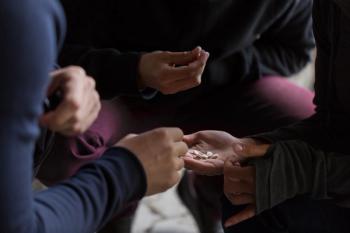
Pediatric ADHD trends and using clonidine hydrochloride as another treatment tool
Rakesh Jain, MD, MPH, notes that with increasing ADHD trends, a newly-available and FDA-approved non-stimulant tool can help treat more patients.
In this Contemporary Pediatrics video interview, Rakesh Jain, MD, MPH, clinical professor, psychiatry, Texas Tech University School of Medicine, discussed the now-available,
This extended-release, liquid formulation is a non-stimulant treatment option that expands the toolkit for managing this increasingly prevalent condition.
"Stimulants really do have a very good signal of effect. That effect is probably only for about 60 and if you’re lucky, 60 to 70% of children and adolescents," Jain explained. However, for those who do not respond to stimulants, treatment options have been limited. "I’ve had no once-a-day clonidine, FDA-approved treatment options available whatsoever, and now with it available, my choices to offer either as monotherapy, or sometimes in combination therapy, just dramatically went up." This broader range of options offers hope for improving academic, social, and family life for patients.
ADHD prevalence is rising nationally, and the complexity of cases is increasing. Jain noted, "ADHD is on a march upwards, and not in a good way. And this isn’t a problem in [just] Texas or Massachusetts or Montana or California [or any one state]. The most recent Centers for Disease Control survey of ADHD in our community show that what you are seeing in your clinics is actually true. The numbers of males and females is going up." He emphasized that ADHD affects all demographics, transcending race and socioeconomic status.
What Jain finds particularly concerning is the increasing complexity of ADHD presentations. "I’m seeing more complexities. I see more behavioral disruption. I see more difficulty with body weight. I see more difficulty with anger outbursts. I see more troubles with sleep difficulties," he said.
"It's almost as if the simple ADHD, whatever that is, doesn't present commonly. It's the more complex scenarios. Therein lies the reason why I'm so excited [to have] more treatment options that fit into a patient's life," said Jain.
Jain expressed enthusiasm for ONYDA XR’s convenience and accessibility. "Bid medications are hard to fit into a patient’s life. Once-a-day medications are easier, and a lot of my kids just don’t take pills or capsules for a variety of reasons. So having a liquid formulation that’s once a day and a non-stimulant on top of it, it is a cause for celebration by all clinicians, psychiatrists, primary care, general pediatrics."
Newsletter
Access practical, evidence-based guidance to support better care for our youngest patients. Join our email list for the latest clinical updates.







